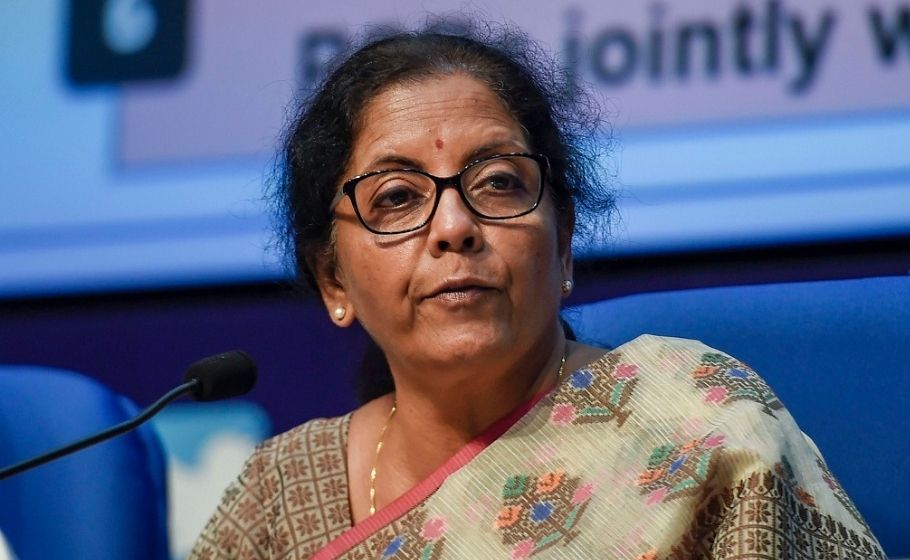
Centre, states must take joint call on reducing fuel taxes: Nirmala
It's up to the central and state governments to take a joint call on reducing taxes on petrol and diesel so that the prices can be brought down, said Union Finance Minister Nirmala Sitharaman on Friday.

It’s up to the central and state governments to take a joint call on reducing taxes on petrol and diesel so that the prices can be brought down, said Union Finance Minister Nirmala Sitharaman on Friday.
The fuel price hike is a raging issue amid the upcoming assembly elections in five states. In some places in Rajasthan, Madhya Pradesh, and Maharashtra, petrol price has touched the ₹100-mark, triggering consumer woes and political debates.
Nearly 60 per cent of the retail price of petrol is made up of central and state taxes. For diesel, taxes make up for about 56 per cent of retail rates.
Sitharaman, who had increased central excise duty on petrol and diesel by a record margin last year to mop up gains arising from international oil prices plunging to a two-decade low, remained non-committal on taking a step to cut central taxes to give relief to consumers.
For consumers, “there is enough case to say that prices should be down, it’s a burden,” she told journalists at IWPC. While the burden on the consumers is “understood”, the pricing is a vexatious issue, the finance minister added.
“That’s where I use the word ‘dharamsankat‘,” she said. “It is a question which I would like states and the Centre to talk about because it’s not just the Centre which has duties on petroleum products, it also has the states charging,” added Sitharaman.
Analysis | Are previous govts to blame for rise in petrol prices – as Modi said?
Stating that both states and Centre draw revenue out of taxes levied on petrol and diesel, she said 41 per cent of the tax collections made by the Centre go to the states. “So there is an issue which is layered and as a result that has to be a matter ideally for the Centre and the states to talk about,” she added.
On the issue of bringing petrol and diesel under the Goods and Services Tax (GST) regime, which will end the cascading impact of taxes and bring uniformity, Sitharaman said the call has to be taken by GST Council, the top decision making body of the indirect tax regime.
Currently, the Centre levies a fixed rate of excise duty while the states levy their different VAT rates. Under the GST, the two would merge and bring uniformity, solving the problem of fuel rates being higher in states with higher VAT.
“Whenever the GST Council decides to take up this issue, they are well within their interest to take it up and discuss. It’s a call which the Council has to take,” she said.
When she was asked if the central government will take such a proposal to the Council in the next meeting likely this month, she said a call will be taken “closer to the date of the Council meeting.”
Related news | GST recovery continues for fifth month, ₹1.13 lakh crore collected in Feb
Sitharaman raised excise duty by ₹13 and ₹16 per litre on petrol and diesel, respectively, between March 2020 and May 2020 and it now accounts for more than one-third of the ₹91.17 a litre price of petrol in Delhi and 40 per cent of ₹81.47 per litre rate of diesel.
Economists at the State Bank of India had earlier this week stated in a report that petrol price can go down to ₹75 a litre across the country if it is brought under the ambit of GST.
Diesel will cost ₹68 a litre and the revenue loss for Centre and states will be only ₹1 lakh crore or 0.4 per cent of GDP, according to the calculation by economists made under the assumption of global crude prices at $60 a barrel and exchange rate at ₹73 per dollar.
(With inputs from agencies)


